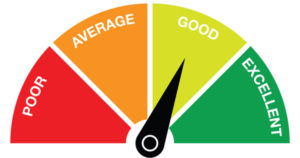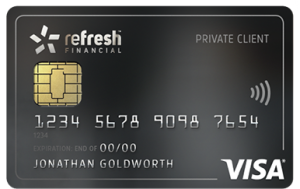Can I get a credit card without a hard credit check?
Have you ever applied for a credit card and were told that your credit will be checked to see if you are approved, or that there might be a ‘hard’ inquiry? You might be asking yourself, what’s a hard inquiry? Are their soft inquiries? What’s the difference?
In this article, we will take a closer look at what credit inquiries are all about, we’ll explore the different types of credit checks and discuss how they impact your score.
What is a credit inquiry?
A credit inquiry is when an organization or individual requests to see information stored in your file. This is a 'credit check'. This check is done to learn more about your payment habits.
What is a credit score?
Your credit score is a number anywhere between 300 and 900. This number represents your “credit trustworthiness” - this is the credit history that's on your credit report. Your credit score is created by a computer that reviews various criteria on your credit report and converts all that information into one simple score.
Your score is typically based on these five main factors:
- Payment history - 35% of your score
- Amount of money you owe versus what you have available, better known as your credit utilization - 35% of your score
- Length of your credit history - 10% of your score
- Types of financial products and tradelines - 10% of your score
- Account inquiries - 10% of your score
What is a “soft” credit check?
There are two types of credit checks: soft credit checks and hard credit checks.
A 'soft' check takes place when a potential landlord, employer, insurance company, pre-approved credit card companies, or if you request to see your credit score for informational reasons.
These soft checks are purely for informational reasons and not for the purposes of assessing your risk. Soft checks can occur without your permission and they do not negatively affect your score — they simply help with your pre-approval or qualification.
Actually a good habit to get into is to check your own score (which is a soft credit check) and monitor your history. You’ll be able to catch any errors in your report. This will help you remain in good standing.
What is a “hard” credit check?
Lenders will want to assess your level of risk when looking to lend you money. Higher risk means you may pay more in interest, or it could mean that you may be declined outright. Lower risk means access to higher borrowing amounts and better interest rates. The lender will determine your level of risk based on your score.
When you submit a credit card application or a lender checks your report through the two major bureaus, this is a ‘hard’ check. These types of checks require your permission before they are carried out, and they can reduce your score. If you are trying to build your score, then stay away from doing too many hard checks.
Do multiple inquiries impact your score?
In Canada, when you shop around for mortgages, student loans, and auto loans, the same inquiry process doesn't apply as it would when you apply for a credit card. With a regular credit card, every credit card application counts towards your score and this is a hard check.
With loans (mortgage, auto, and student loans), as long as you’re shopping around and you don’t take the loan offer within 30 days, the inquiries won’t affect your score. Also, if your report shows inquiries older than 30 days, this counts as only one inquiry. Learn more about how credit inquiries affect your score.
Reduce your hard inquiries
Too many inquiries can make you appear desperate because a hard check indicates that you are actively looking to borrow money. Hard checks can remain on your report for up to six years. If you want to build your credit, then reduce your hard inquiries.
Credit bureaus offer both financial institutions and a few creditors the opportunity to do a soft inquiry on behalf of their clients. This way you can see what product offers are available to you without formally applying for them.
Check your score before you apply
Something to avoid is the ‘apply until you get approved’ strategy. You can check your Equifax credit score for free by signing up for Borrowell. Once you've signed up, you can quickly compare loans and credit cards before you apply, which can help you limit the number of hard credit checks made on your report. Checking your credit score with Borrowell is a soft credit check, so it doesn't impact your score. When you know your score in advance it gives you an idea of whether you are going to be approved for the financial products you’re after. And, whether it’s worth the hard check once you apply.
Get approved without a hard credit check
Do you have a poor credit history, and are struggling to get approved for financial products? Start by building your score with a secured card. Secured cards are different than prepaid cards and other credit cards. With a secured card, you use your own money to put a deposit on the card. The amount of the deposit is equal to the limit on the card.
Not all secured cards are the same. Some of the companies that offer secured cards will do a hard check. However, with the Refresh Cash Secured Card, you’re automatically approved without doing a hard credit check. The Refresh Cash Secured Card comes with a low-interest rate and low fees. And, all your payment activities will be reported to both Canadian bureaus to help you build your score.
Learn more about Refresh's Cash Secured Card it will help you spend while building your score.
Reverse the damage from numerous credit checks
You can’t reverse the damage, the only way to allow your score to recover is with time. Wait as long as you can before incurring more inquiries on your credit. This means you may have to wait a few months before applying for additional financial products.
In the meantime, continue to work on paying your bills on time, and keep your credit utilization ratio within 30%.
To continue to learn about managing your debt and credit score wisely, follow Refresh’s Financial Blog.
*******
Refresh financial offers custom credit building solutions to help you build your credit score FAST.










Leave a Reply